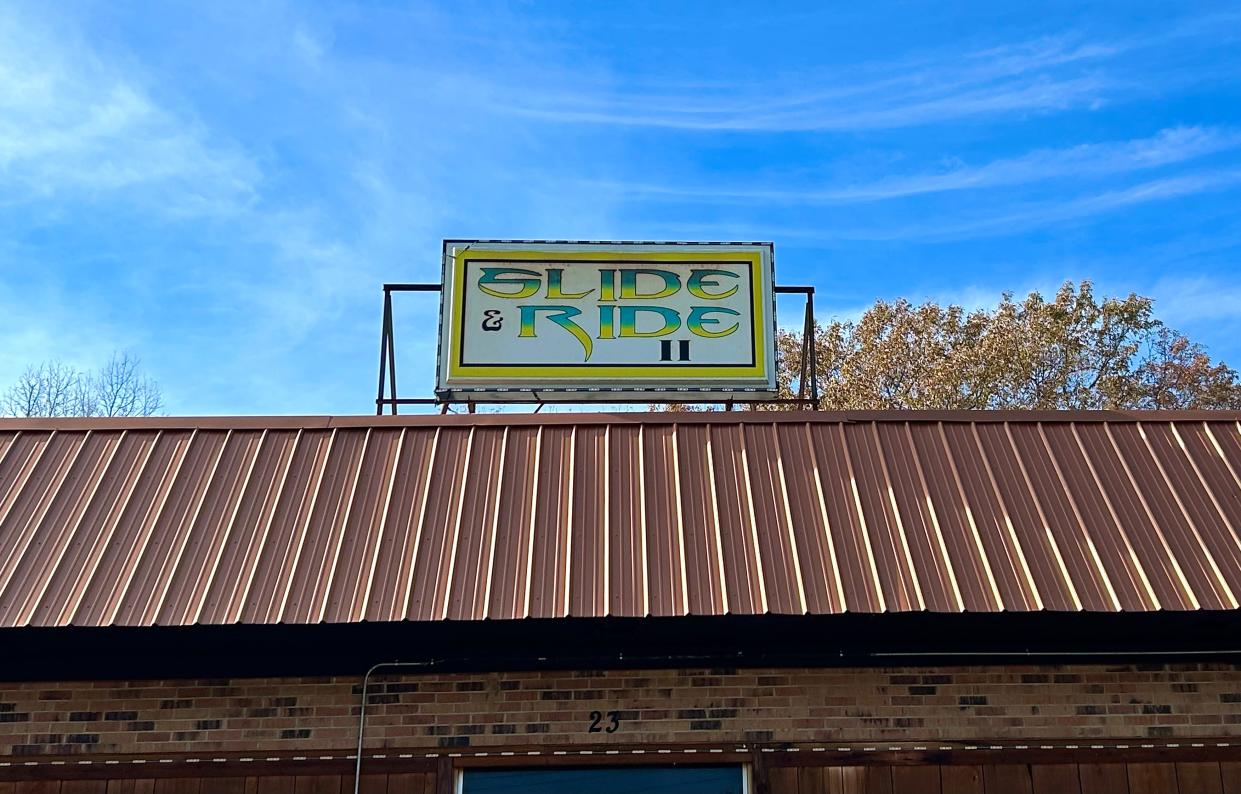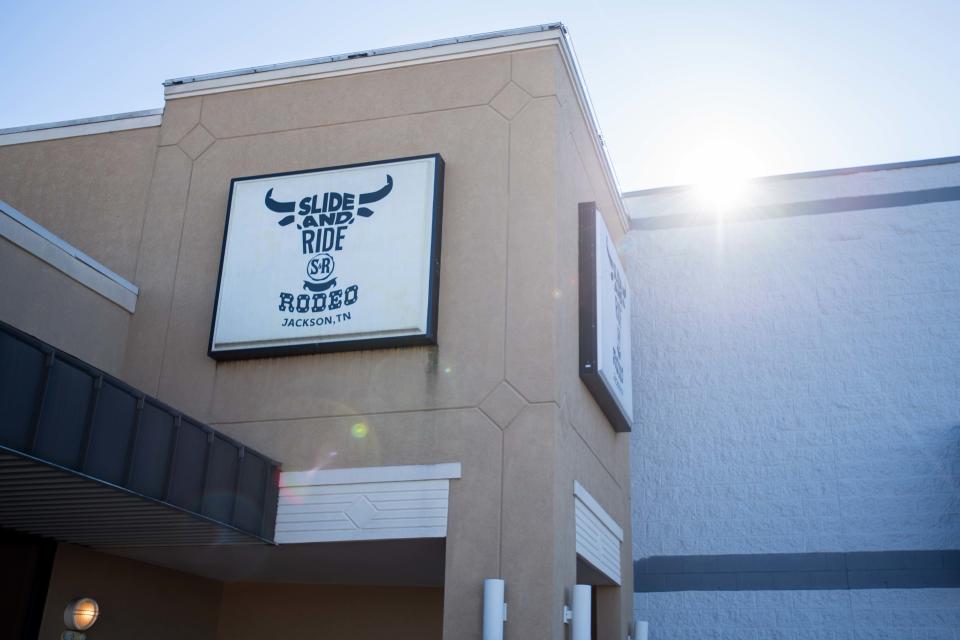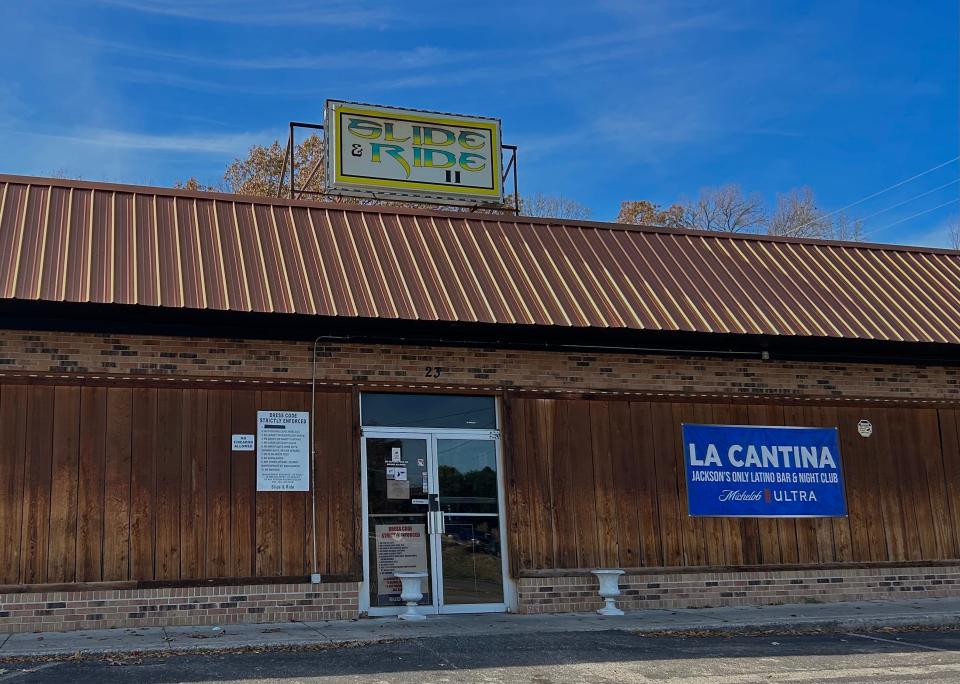Jackson Slide and Ride sued over copyright infringement violations for the second time

Amid the live music and line dancing, Jackson's "Slide and Ride 2" location at Heritage Square is under its second round of legal fire for violation of copyright infringement.
Filed on Oct. 17, the complaint disclosed a violation of Title 17 of the U.S. Code, a law pertaining to the unauthorized use of a protected work.
Following a nearly identical lawsuit in 2017, which was settled and dismissed, the most recent legal complaint comes as the venue's second alleged violation of copyright infringement as a result of its presumed failure to pay licensing fees.
The American Society of Composers, Authors, and Publishers (ASCAP) represents J&N Publishing, LLC and NOTA Publishing, Inc. in four known instances of infringement violation complaints against Slide and Ride 2.
After agreeing to obtain an ASCAP license upon settlement of the 2017 case, licensing fees were again neglected and ASCAP terminated Slide and Ride's license in July 2019.
After dozens of attempts to offer relicensing, according to ASCAP, it is once again pursuing legal recourse against the Slide and Ride owners.
About the case
Slide and Ride 2 is one of 12 venues across the country currently being sued for synonymous violations of copyright infringement.
Its owners, William Diamond and Douglas Keeton, are listed as the defendants in the complaint. The two also co-own the Slide and Ride Rodeo at Broadview Drive, a locally famous sister venue known for its live bull riding. Per state property assessment data, Diamond is the designated property owner of the Heritage Square location while Keeton owns the Broadview Drive location.

Senior Vice President of ASCAP Business and Legal Affairs Jackson Wagener disclosed that legal action is maintained as a last resort option and only after a number of contact attempts have been made to avail.
"It's only after we make repeated efforts to license an establishment, do we take a relatively extraordinary step," he said.
Wagener says that ASCAP's dedicated licensing staff have made dozens of attempts over the last year to contact the owners through means of phone calls, letters, and emails before filing the complaint in October.
"If we've made all that effort and educated the owners and explained to them how they can get a license and why it's important, and they still refuse, then we take the step of hiring an independent investigator."
The investigator is then tasked with attending the venue on any given night and will take note of the songs that were played. If the identified songs are characterized as being under ASCAP ownership and the establishment ceases to have a license, the songs could be legally contested.

Under current copyright law, music users [Slide and Ride 2] must obtain permission through proper licensure before their music is played in public.
"We also offer the establishment owners literally dozens of opportunities. In each letter, they're offered the opportunity to obtain an ASCAP license," Wagener said.
Slide and Ride 2 has not yet responded to requests from The Jackson Sun for comment.
How licensing works
With an ASCAP license, owners then possess the legal right to use any and all of the more than 18 million works protected by ASCAP, according to Wagener.
The necessity of an ASCAP license extends to nightclubs, bars, restaurants and any venue where music will be played. However, failure to obtain a license results in legal fines whose financial detriments can cost triple or more than the yearly fee for an ASCAP license.
In a press release on Oct. 18, it was disclosed that for average restaurants and bars, licensing fees amount to an average of less than $2 per day. Licensing fees occur yearly and are determined based on an establishment's following characteristics:
Size/capacity (the larger the venue, the more valuable the performance is and the higher the licensing fee)
Type of music being performed (differentiated by live music, background music, karaoke, etc)
Occurrence of live music (distinguished by its playing three nights or less and four nights or more)
What is ASCAP?
A membership association of more than 950,000, American Society of Composers, Authors, and Publishers represents a collective of songwriters, composers, lyricists and publishers. ASCAP serves as the catalyst in granting licensure on behalf of its members to music streaming platforms, commercial television and radio, restaurants, bars, and venues alike to allow for public performances of their music.
Established in 1914 as the world's first Performing Rights Organization (PRO), ASCAP represents a plethora of famous musicians and bands that have licensed their works through ASCAP, which today, totals 18 million.
In what Wagener described as ASCAP's "very substantial class of professional songwriters", the difference between them and some of the organization's world-renowned performers is the songwriter's dependence on royalties.
"For those professional songwriters, they're not touring, they're not selling merchandise, and so they're really dependent on the royalties they earn from ASCAP to allow them to put food on the table, pay rent, or get their kids through school," Wagener said. "Those members entrust ASCAP with the duty of going out and helping them earn fair compensation when their music is played publicly."
For every dollar ASCAP collects in licensing fees, it redistributes approximately 90 cents of that dollar back to its members.
“Hundreds of thousands of well-run businesses across the nation recognize that music is vital to their business and that compensating the songwriters who created it is the lawful and right thing to do," wrote ASCAP Executive Vice President, Head of Licensing Stephanie Ruyle in a press release.
"However, each of the establishments sued today has decided to use music without paying its creators. By filing these actions, ASCAP is standing up for songwriters whose music is essential to those businesses and their customers.”
This article originally appeared on Jackson Sun: Jackson Slide and Ride rodeo sued 2nd time for copyright infringement

